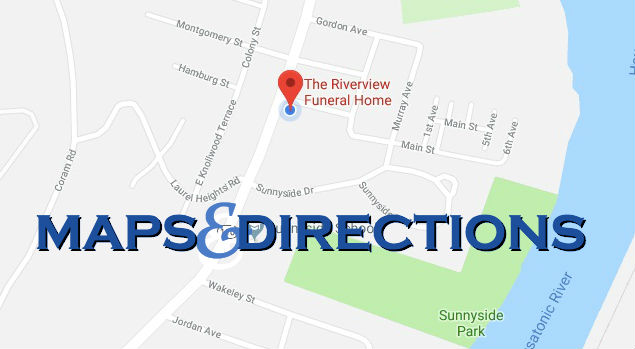In the days, weeks, and months that follow the death of a loved one, one can feel overwhelmed by the “administrative” tasks that need to be done. Talk of estates and probate are often the last thing you can focus on as you deal emotionally with your loss. We can talk you through the process to make matters seem a little less overwhelming, and we also take it upon ourselves to notify Social Security and prepare to file for Veterans Benefits on your loved one’s behalf.
Social Security
Many families that we serve are eligible for Social Security Survivors Benefits. We at the funeral home notify Social Security of the death on behalf of the family, which begins the process for receiving applicable benefits. The information that follows is exerted from the Social Security Administration guidebook and explains the benefits available to survivors.
Who Can Get Survivors Benefits?
When you die, Social Security survivors benefits can be paid to your:
widow or widower-full benefits at 65 or older (if born before 1940)or reduced benefits as early as age 60. (The age for receiving full benefits gradually increases for persons born after 1939 until it reaches age 67 for persons born in 1962 and later.) A disabled widow or widower can get benefits at 50-60. The surviving spouse’s benefits may be reduced if he or she also receives a pension from a job where Social Security taxes were not withheld. For more information, call us to ask for the factsheet Government Pension Offset (Publication No. 05-10007);
widow or widower at any age if she or he takes care of your child under 16 or disabled who get benefits;
unmarried children under 18 (or up to age 19 if they are attending elementary or secondary school full time). Your child can get benefits at any age if he or she was disabled before age 22 and remained disabled. Under certain circumstances, benefits also can be paid to your stepchildren, grandchildren, or adopted children; or
dependent parents at 62 or older.
Special One-Time Death Benefit
There is a special one-time payment of $255 that can be made when you die if you have enough work “credits.” This payment can be made only to your spouse or minor children if they meet certain requirements.
How Much Are Benefits?
How much your family can get from Social Security depends on your average lifetime earnings. That means the higher your earnings, the higher their benefits will be.
The amount they will get is a percentage of your basic Social Security benefit. The percentage depends on their age and the type of benefit they are eligible for. Here are the most typical situations.
- widow or widower, age 65 or older—100 percent;
- widow or widower age, 60-64—about 71-94 percent;
- widow, any age, with a child under age 16—75 percent; or
- children—75 percent
Again, the full Social Security Guidebook can provide additional information.
Veterans Benefits
We are proud supporters of numerous community veterans organizations, and we strive to make sure that all the veterans whose families we serve receive all the benefits due them from their service to their country.
Military Funeral Honors
By law, at the family’s request, every eligible veteran is entitled to a military funeral honors ceremony. This ceremony is performed by at least two uniformed military persons, typically at the cemetery, church, or at the funeral home, which includes folding and presenting the United States burial flag and the playing of Taps. “Honoring Those Who Served” is the title of the Department Of Defense program for providing dignified military funeral honors to veterans who have defended our Nation. Military funeral honors are a long-standing tradition within the Armed Forces, and this DOD program is in response to the new law governing funeral honors for eligible veterans.
United States Flag
 Every deceased veteran who served honorably in the United States Armed Forces is provided a flag, at no cost, to drape the casket or accompany the urn to honor the memory of the veteran’s military service. Following the funeral service, if the family has requested Military Funeral Honors, uniformed members of the military will fold the flag and present it to the deceased’s nest-of-kin.
Every deceased veteran who served honorably in the United States Armed Forces is provided a flag, at no cost, to drape the casket or accompany the urn to honor the memory of the veteran’s military service. Following the funeral service, if the family has requested Military Funeral Honors, uniformed members of the military will fold the flag and present it to the deceased’s nest-of-kin.
Grave Markers
The Department of Veterans Affairs provides, at no expense to the family, a Government marker for all eligible veterans in any private cemetery that allows it. (There are no cemeteries in the area that do not accept Veterans Markers) With a veterans discharge, or DD-214, which is usually provided by the family, we will prepare the paperwork for the marker, review the information with the family to make sure it is correct, obtain permission from the cemetery, and forward all the necessary documentation to the Department of Veterans Affairs. Footmarkers can take anywhere from 12 to 18 weeks from the time of submitting the paperwork before they are delivered to the cemetery.
Marker Installation
The Connecticut Veterans Association pays for the transportation and installation of a government footmarker for eligible CT Veterans who are buried in a Cemetery in Connecticut. Again, we will prepare all the necessary paperwork, obtain authorization from cemetery, and forward to the appropriate documentation to the CT VA.
Burial Benefits
In certain circumstances, veterans who are receiving a VA Pension, who pass away while receiving treatment in a VA Hospital, or who pass as a result of a service-related disability may be eligible for partial reimbursement of burial and funeral costs. We will prepare the application on behalf of the family and forward it to VA for review.
Links to related veterans benefits web sites are listed below:
Department of Veterans Affairs
Veterans Benefits Administation Burial Allowance Information





